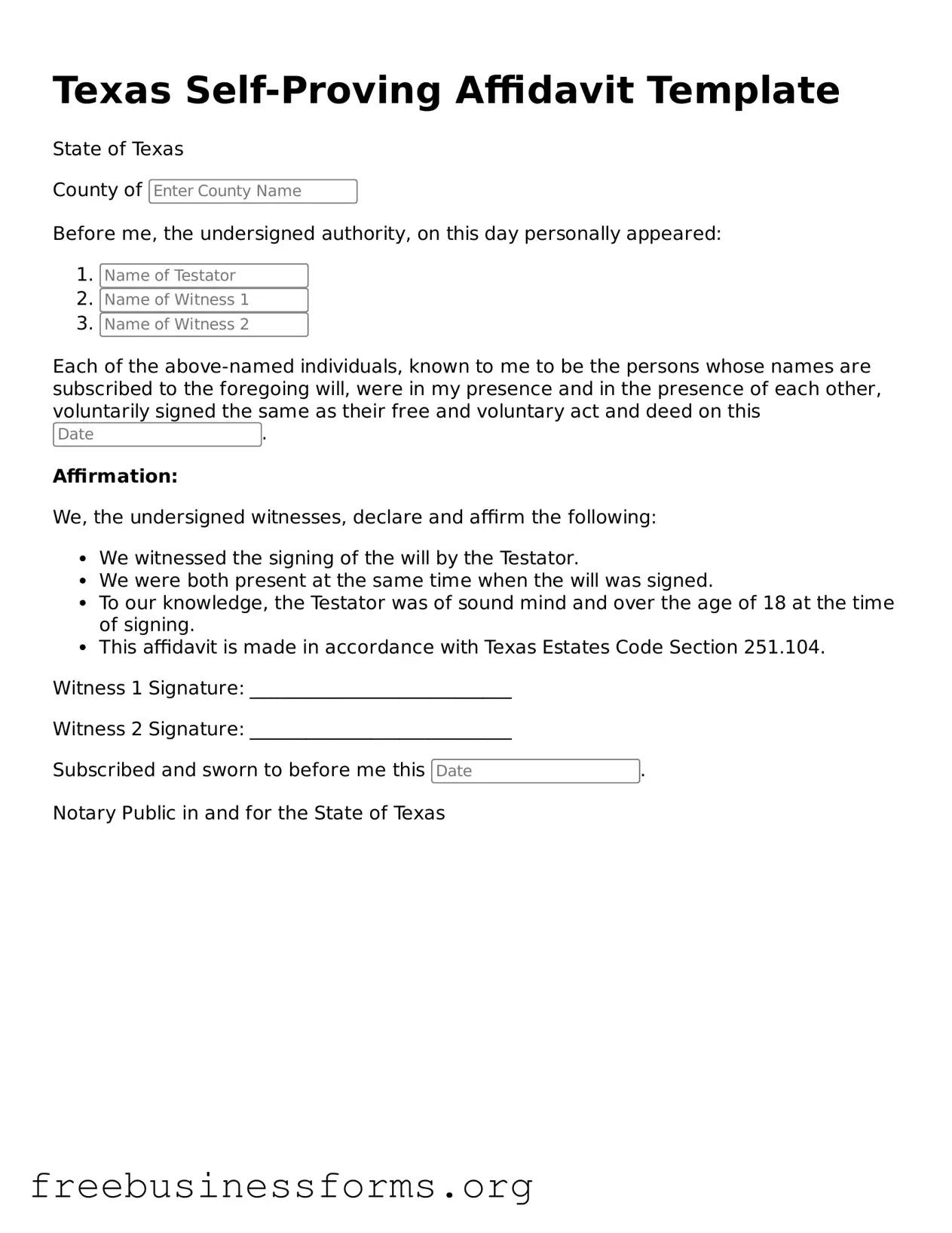Blank Self-Proving Affidavit Template for Texas
The Texas Self-Proving Affidavit is a legal document that allows a testator's will to be validated without requiring witnesses to appear in court. This form simplifies the probate process by providing a sworn statement from the testator and witnesses, affirming the will's authenticity. Understanding this affidavit is crucial for anyone looking to ensure their estate is handled according to their wishes.
Open Form Here

Blank Self-Proving Affidavit Template for Texas
Open Form Here

Open Form Here
or
↓ PDF File
Quickly complete this form online
Complete your Self-Proving Affidavit online quickly — edit, save, download.